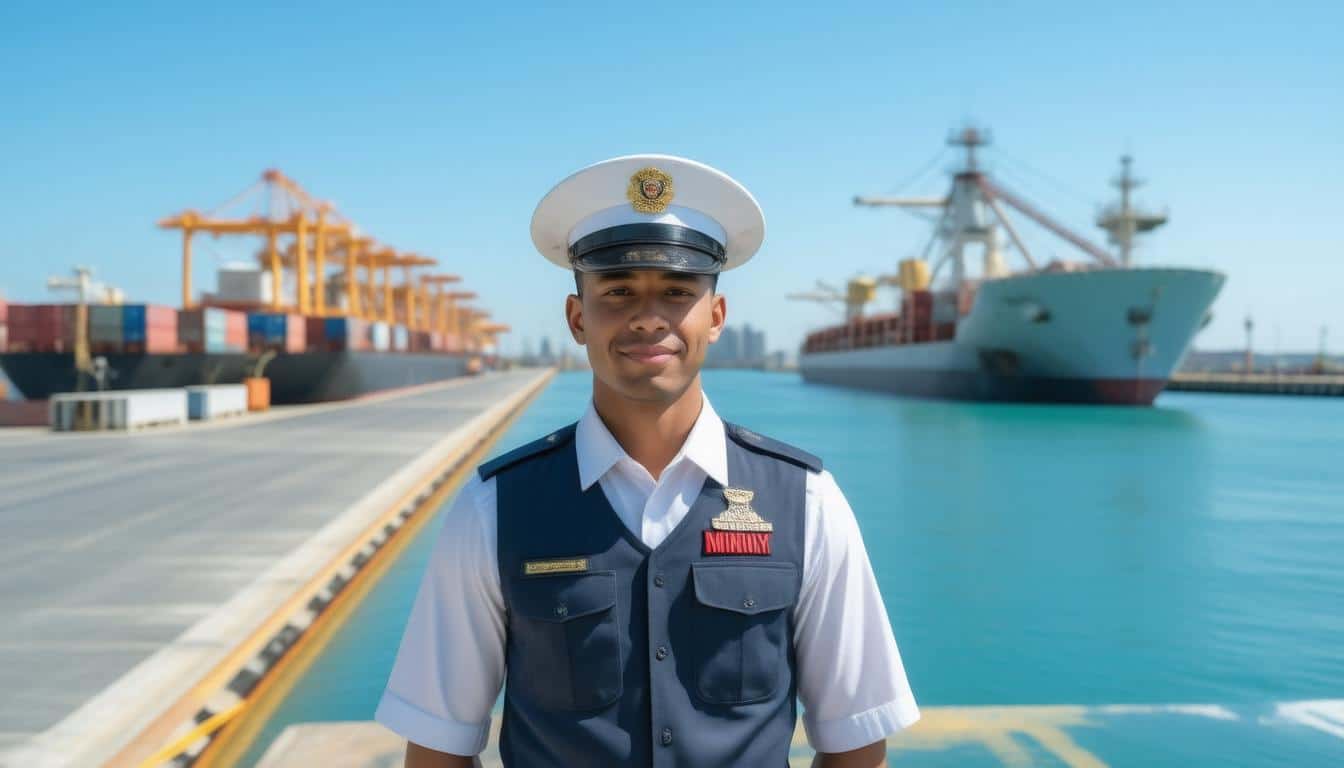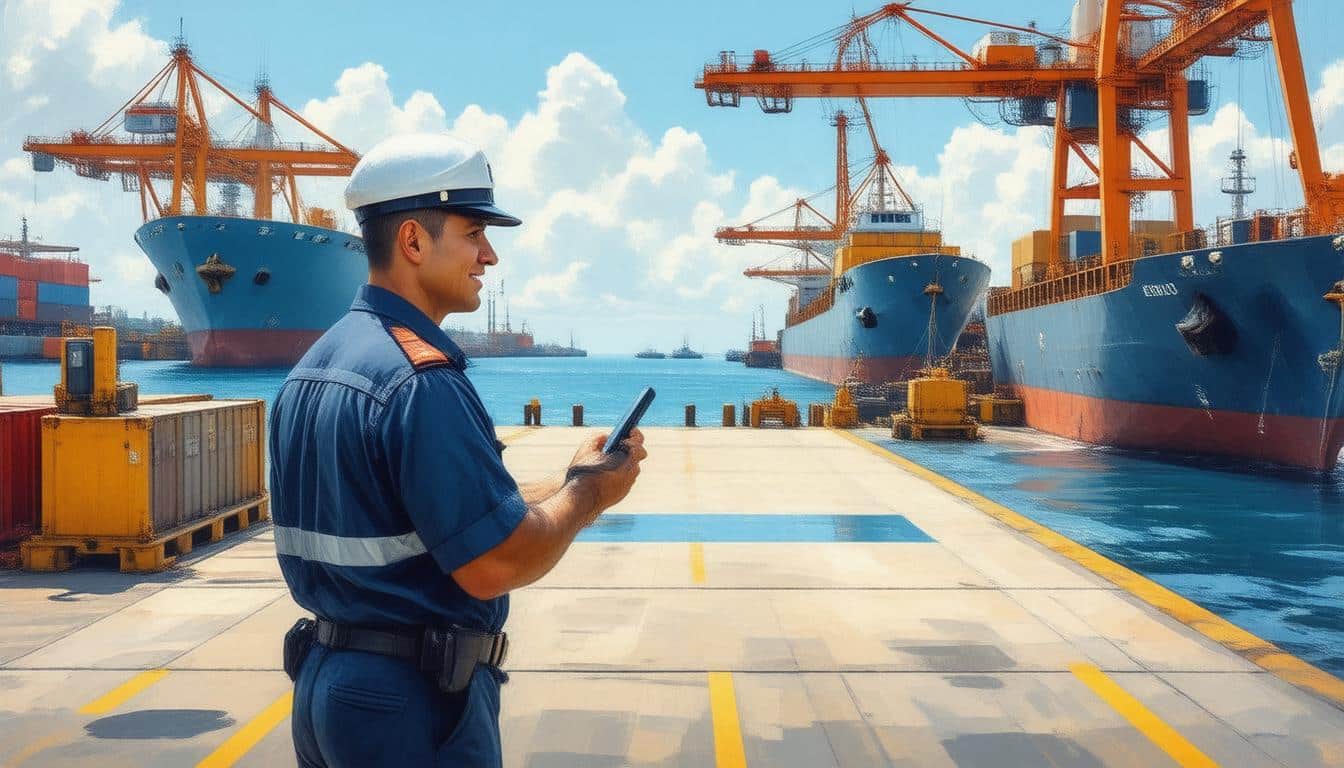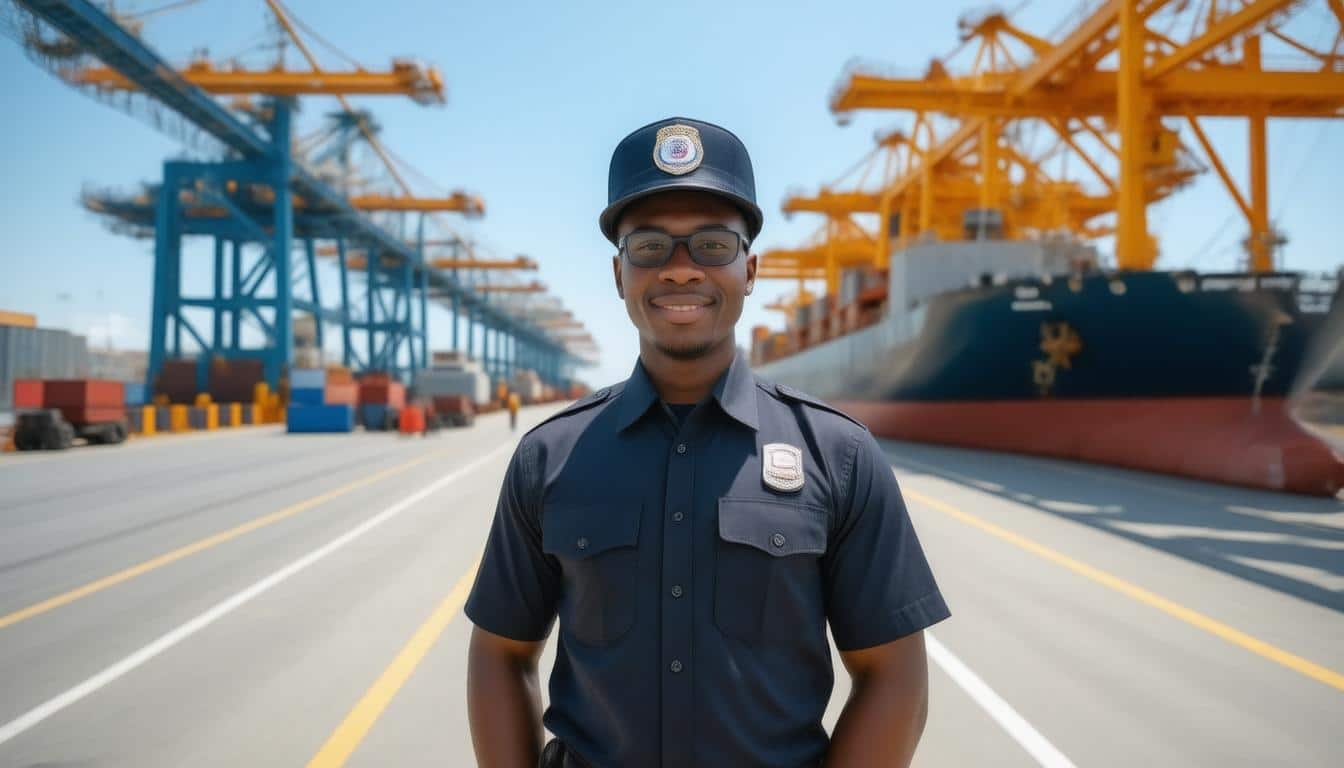Marine facilities play a crucial role in global trade, transportation, and maritime activities, but they also face a unique set of challenges concerning security. As maritime security becomes increasingly prioritized, marine facility security officers are at the forefront of safeguarding these vital installations. In this article, we will explore the top challenges faced by marine facility security officers, delving into the distinctive security risks these facilities encounter, navigating the complex landscape of legal and regulatory compliance, the implementation of effective security technology and systems, and the continuous task of training and retaining skilled security personnel. Understanding these challenges is essential for enhancing maritime security and ensuring the safety of our marine environments.
Learn More About Our Courses Here!
Key Takeaways
- Marine facilities face distinctive security risks due to their maritime environment.
- Legal and regulatory compliance presents ongoing challenges for security personnel in marine facilities.
- Adopting cutting-edge security technology is crucial for enhancing safety at marine facilities.
- Training skilled security personnel is essential for effective marine facility operations.
- Retaining experienced security officers is a significant challenge in maintaining security standards.
Understanding the Unique Security Risks of Marine Facilities
Understanding the unique security risks associated with marine facilities is crucial for effective management and response strategies. Marine facility security officers face numerous challenges daily, from protecting vast stretches of waterfront property to securing sensitive cargo and information. One of the top challenges faced by marine facility security officers is dealing with the dynamic and often unpredictable maritime environment, which can include everything from severe weather conditions to unregistered vessels approaching the perimeter. Moreover, the extensive and open nature of these facilities makes them susceptible to various threats including theft, vandalism, and even terrorism. Additionally, there is the challenge of coordinating with governmental agencies, such as the Coast Guard and port authorities, which adds a layer of complexity to their security operations. Understanding these top challenges not only highlights the vital role of security officers in maintaining safety but also emphasizes the need for continuous training, advanced surveillance technology, and rigorous emergency response planning to protect these vital assets effectively.
Navigating Legal and Regulatory Compliance
Navigating legal and regulatory compliance is one of the top challenges faced by marine facility security officers. As custodians of safety in maritime environments, these professionals must adhere to a complex web of federal, state, and local regulations designed to protect the integrity of ports and marine facilities. The ever-evolving nature of maritime laws, including the International Ship and Port Facility Security (ISPS) Code, mandates that security officers stay updated on compliance requirements to avoid potential fines and legal repercussions. Furthermore, balancing these obligations with the practicalities of daily operations presents a unique challenge; officers must implement effective security measures without disrupting the flow of maritime commerce. This dual responsibility not only demands extensive training but also necessitates the development of strong communication skills to collaborate with multiple stakeholders, including law enforcement and regulatory agencies. In the dynamic field of marine security, understanding these top challenges is crucial for professionals aiming to protect assets while ensuring compliance in a rapidly changing landscape.
‘The greatest weapon against stress is our ability to choose one thought over another.’ – William James
Learn More About Our Courses Here!
Implementing Effective Security Technology and Systems
In the ever-evolving landscape of maritime operations, implementing effective security technology and systems is crucial for safeguarding marine facilities. Security officers face top challenges that require robust solutions to ensure the safety of vessels, personnel, and cargo. One significant hurdle includes the need for real-time surveillance capabilities; the maritime environment is vast and often remote, making it difficult to monitor activities consistently. Additionally, integrating advanced technology, such as drones and AI-driven analytics, poses another challenge, as many marine facility security officers must be trained to utilize these systems effectively. Furthermore, the variability of maritime regulations can complicate compliance, as officers must regularly adapt to new policies which affect how they deploy security measures. By addressing these top challenges faced by marine facility security officers, organizations can enhance their security posture and respond effectively to potential threats.
Training and Retaining Skilled Security Personnel
The maritime industry is vital for global trade, but it also presents unique risks requiring robust security measures. As such, training and retaining skilled security personnel becomes crucial for ensuring safety at marine facilities. Among the top challenges faced by marine facility security officers is the dynamic nature of the maritime environment, which demands continuous adaptation to new threats. Insufficient training programs can lead to gaps in knowledge and preparedness, making it harder for officers to respond effectively to incidents. Moreover, high turnover rates further complicate the landscape, as officers trained in security protocols often leave for better opportunities, resulting in a loss of experienced personnel. To combat these challenges, marine facility operators must invest in comprehensive training programs that not only enhance the skills of their security teams but also foster a supportive work environment that encourages retention. By addressing the top challenges faced by marine facility security officers, organizations can strengthen their security posture and ensure the safety of their operations.
About Virtual Maritime Academy
Virtual Maritime Academy is a leading provider of online maritime education and training, offering a wide range of courses designed to meet the needs of the global maritime industry. With a commitment to quality and innovation, Virtual Maritime Academy is dedicated to preparing seafarers and maritime professionals for success in their careers. Now a DNV Certified Maritime Training Provider, the academy upholds the highest standards of excellence in training and education.










